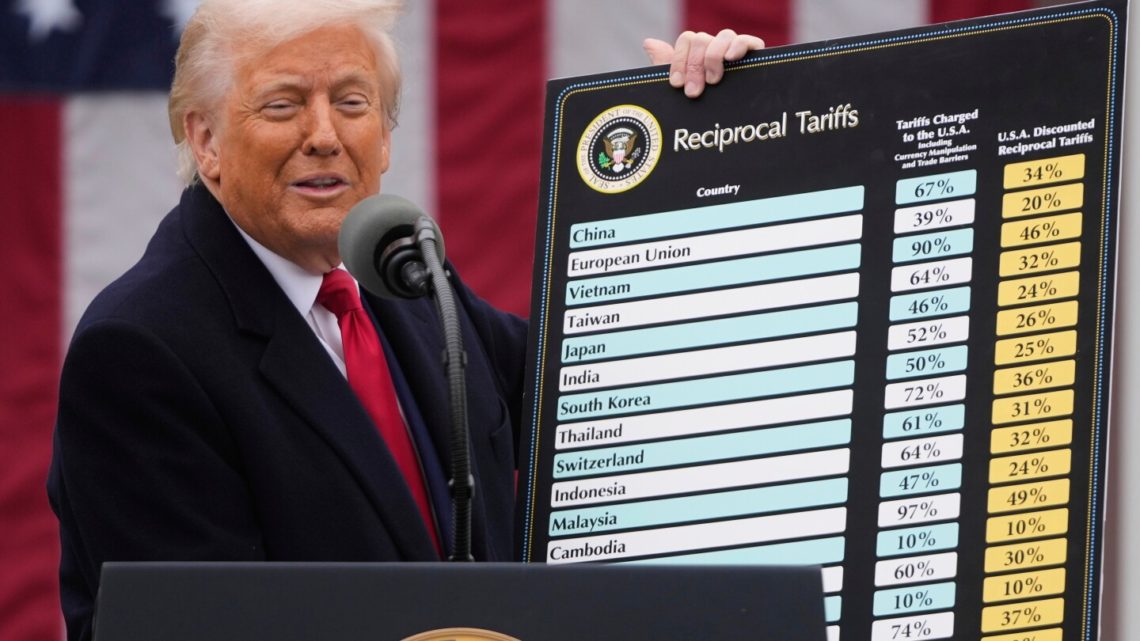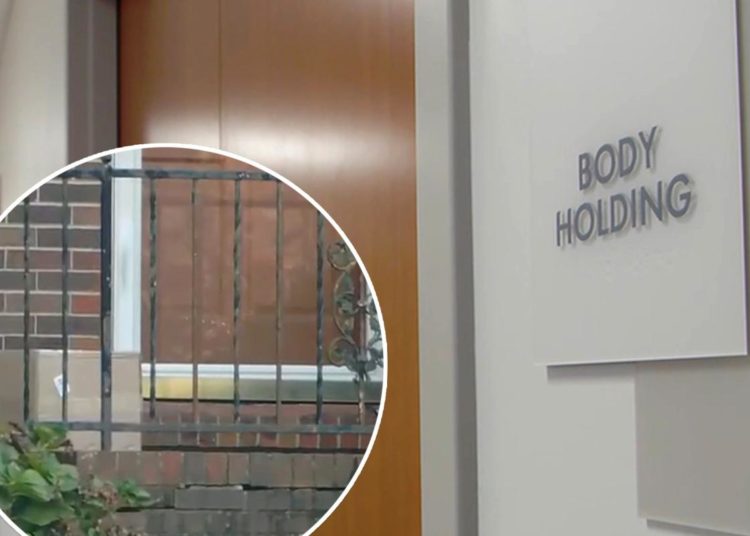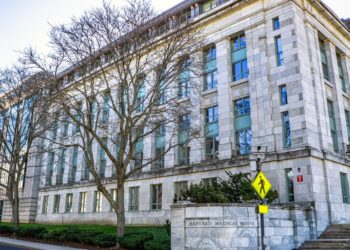WASHINGTON (AP) — President sees — or the threat of them — as a powerful tool to bend nations to his will.
He has used them in an unprecedented way, not only as the underpinning of , but also as the cornerstone of his in his second term.
He has wielded the import taxes as a threat . He has used them to browbeat nations into promising to do more to from flowing across their borders. He has used them, as political pressure because its judicial system prosecuted a former leader who was a Trump ally, and in a with Canada, as punishment for a .
This week, the on whether the Republican president has overstepped federal law with many of his tariffs. could limit or even take away that swift and blunt leverage that much of his foreign policy has relied on.
Trump increasingly has expressed agitation and anxiety about the looming decision in a case he says is one of the most important in U.S. history.
He has said it would be a “disaster” for the United States if the justices fail to overturn lower court rulings that found he went too far in using an emergency powers law to put his tariffs in place. Trump has suggested he may take the highly unusual step of attending the arguments in person.
The Justice Department, in its defense of the tariffs, has highlighted the expansive way Trump has used them, arguing that the trade penalties are part of his power over foreign affairs, an area where the courts should not second-guess the president.
Earlier this year, two lower courts and most judges on the U.S. Court of Appeals for the Federal Circuit found that Trump did not have power under the or IEEPA, to set tariffs — a power the Constitution grants to Congress. Some dissenting judges on the court, though, said the 1977 law allows the president to regulate imports during emergencies without specific limitations.
The courts left the tariffs in place while the Supreme Court considers the issue. Meanwhile, Trump has continued to wield them as he has tried to pressure or punish other countries on matters related — and unrelated — to trade.
“The fact of the matter is that President Trump has acted lawfully by using the tariff powers granted to him by Congress in IEEPA to deal with national emergencies and to safeguard our national security and economy,” White House spokesman Kush Desai said in a statement. “We look forward to ultimate victory on this matter with the Supreme Court.”
Most presidents haven’t used tariffs as a foreign policy tool
Modern presidents have used financial sanctions such as freezing assets or blocking trade, not tariffs, for their foreign policy and national security aims, said Josh Lipsky, a former Obama White House and State Department staffer who is now the international economics chair at the Atlantic Council.
There are other laws that presidents can use to impose tariffs. But they require a monthslong process to justify the rates.
Trump, citing the IEEPA, moves faster and more dramatically. He signs executive orders imposing new rates and fires off social media posts threatening additional import taxes, as he did in late October when he was angered by an anti-tariff television ad aired by the province of Ontario.
“Presidents have typically treated tariffs as a scalpel, not a sledgehammer,” Lipsky said.
In contrast, Trump has used tariffs as the backbone of his national security and foreign policy agenda, Lipsky said. “All of it is interconnected and tariffs are at the heart of it,” he said.
For example, earlier this year Trump had threatened a 30% tariff on European imports, a major increase from 1.2% before he took office. Seeking to secure Trump’s support for the NATO military alliance and for security guarantees for Ukraine in its war with Russia, the European Union to settle for 15% tariffs.
The EU Commission for giving away too much. But argued the settlement was “not only about the trade. It’s about security. It’s about Ukraine.”
Trump has been able “to use it in specific circumstances to get better deals — not just trade deals — but better deals overall than he might otherwise,” Lipsky said. “On the other hand, you would say there’s probably some backlash.”
Supreme Court decision could rattle geopolitics — and wallets
Trump’s tariff strong-arming has rattled relationships with America’s friends and foes. Some have responded by becoming more protectionist or looking to foster relations with China, which
There also is the impact on pocketbook. Some businesses have passed on to consumers by raising prices, while others have waited to see where tariff rates end up.
Tariffs traditionally have been used just as a tool to address trade practices.
“There’s literally no precedent for the manner that President Trump is using them,” said Emily Kilcrease, who was a deputy assistant U.S. trade representative and earlier worked on trade issues at the National Security Council as a career civil servant during the Obama, Trump and Biden administrations,
“The use of tariffs the way that President Trump is using them is like — just broadscale attack on an economy as a way to incentivize a foreign government to change their posture,” said Kilcrease, now a director at the Center for a New American Security think tank.
But she said the case is not clear-cut. Kilcrease said she thinks there is a “decent chance” the Supreme Court could side with Trump because IEEPA gives the president “broad, flexible emergency powers.”
The case is also coming before a Supreme Court that has thus far been reluctant to check to Trump’s wide-ranging use of executive powers.
If the court constrains Trump, it could leave foreign governments questioning whether to try to renegotiate trade agreements recently struck with the Trump administration, experts said. But there are political realities at play too, because reneging on deals could affect other foreign policy or economic priorities.
The administration could pivot to try to use other laws to justify the tariffs, though that could mean a more complex and bureaucratic process, Kilcrease said.
“It certainly doesn’t take tariffs off the table,” she said. “It just makes them a little bit slower.”
___
Associated Press writer Lindsay Whitehurst contributed to this report.
The post Tariffs are Trump’s favorite foreign policy tool. The Supreme Court could change how he uses them appeared first on Associated Press.




